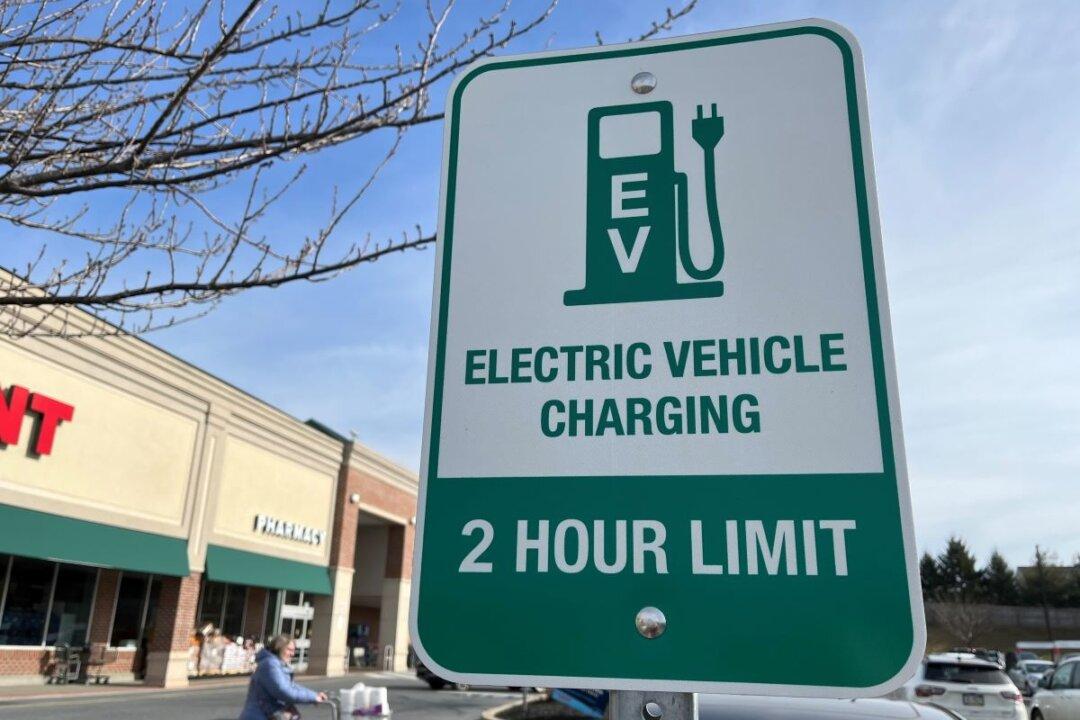So far, just one electric vehicle (EV) charger has been built under a $7.5 billion program introduced by President Joe Biden’s 2021 infrastructure bill that aims to dramatically expand the nation’s EV charging infrastructure.
The White House said Monday that the nation’s first EV charging station funded by the $7.5 billion program has been officially launched and is operating in Ohio, as the Biden administration aims to grow the nationwide network of public EV chargers to 1.2 million by 2030.





